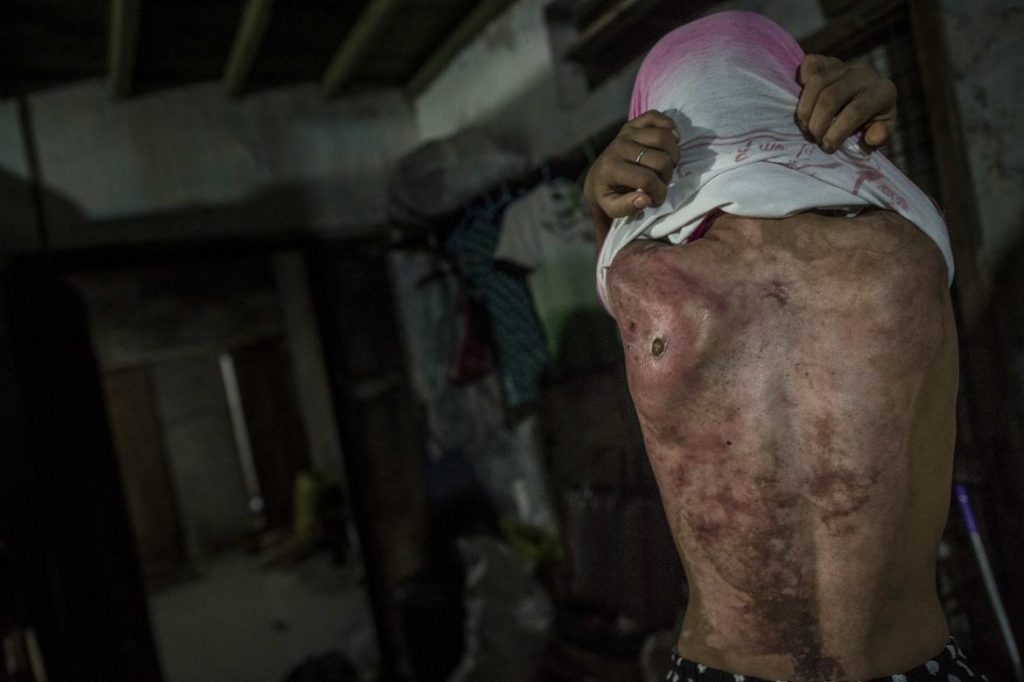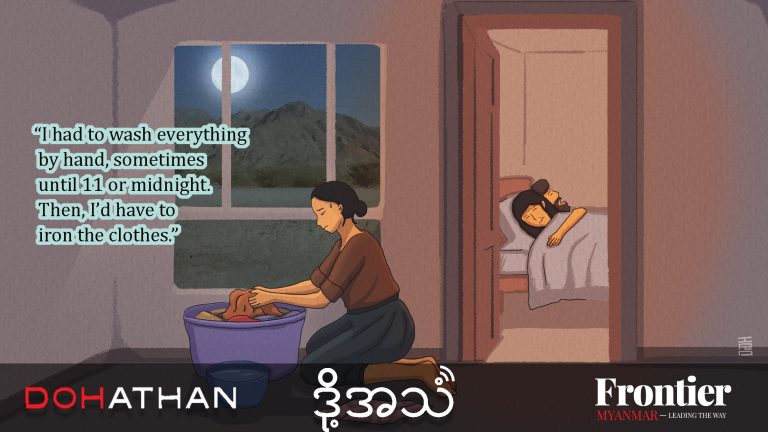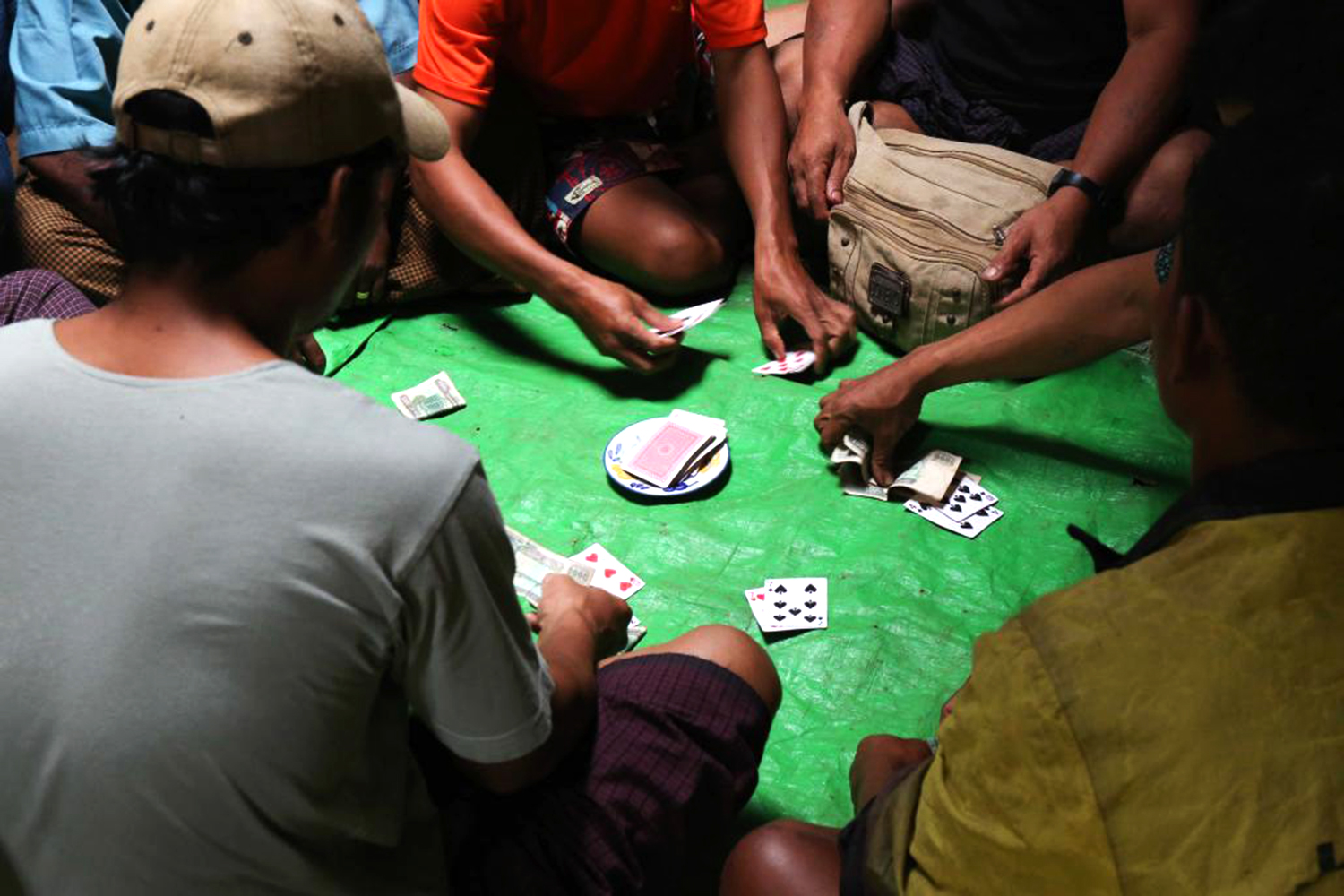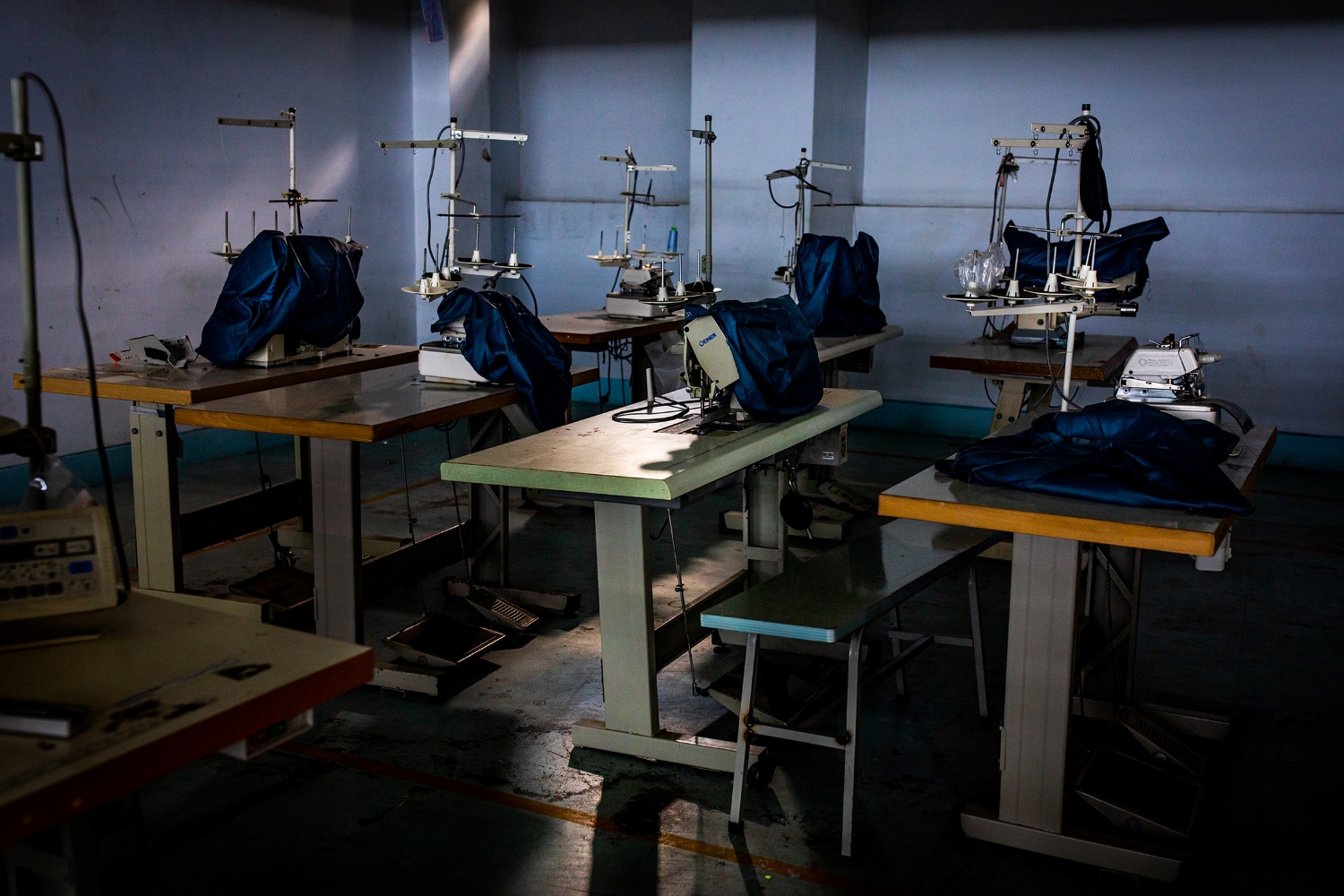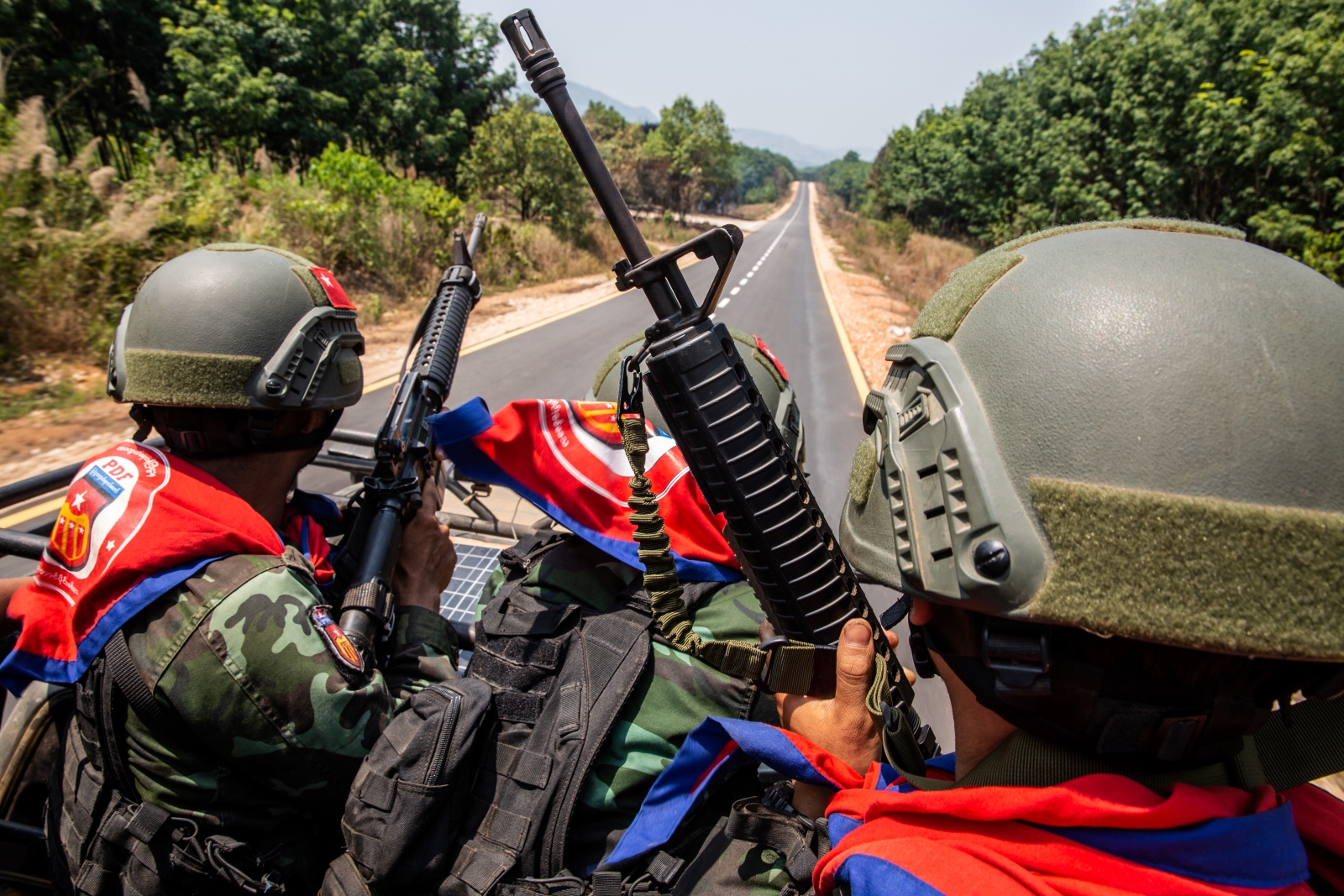The horrific beating and burning of two teenaged sisters in Mawlamyine has once again shone a light on the abuse of young domestic workers in Myanmar.
By HLA-HLA HTAY | AFP
MAWLAMYINE — Ma Khin Khin Tun’s back is a patchwork of burns, searing memories she says from when her former employer poured two flasks of boiling water over her flesh – one for each orange she was accused of stealing.
The 14-year-old and her sister spent years working as domestic helpers in Mawlamyine, part of a vast invisible workforce of child servants hidden in the country’s wealthy houses.
“Aye Aye Soe took a flask and poured it on the left side of my body. She told me to tell the truth. When I replied I didn’t have (the orange) she beat me,” she told AFP this week.
“When I shouted I was burning, she beat me around the head. There was a lot of blood.”
Support more independent journalism like this. Sign up to be a Frontier member.
Khin Khin Tun was rescued after three years working for Daw Aye Aye Soe, a 40-year-old widow, and her mother Daw Tin Pyone in their home and as a waitress for their catering service.
The girl was sent by her father to be a domestic helper to fund his medical bills. Her younger sister Ma Thazin Aung, now 12, was later also taken in by the women.
At first Khin Khin Tun was paid 30,000 kyat a month for working more than 17 hours a day, but that stopped after her father passed away in 2015. Soon the beatings started.
Ma Hla Shwe, who also worked at the catering company, said she witnessed the boiling water attack in December.
The teenager was forced to strip before Aye Aye Soe “poured hot water” over her body, she said.
“I could only watch this scene. What could I do? I cannot say anything,” she added tearfully.
The sisters are among tens of thousands of youngsters who support their families through domestic work for the growing urban elite in Myanmar’s booming cities.
Alone, invisible and without any legal protection, experts say they are highly vulnerable to exploitation and abuse.
The issue came to light last year when two teenage domestic helpers were freed from a tailor shop in Yangon, where they said they spent five years being beaten, stabbed and deprived of sleep and food.
The case shocked the country and the president ordered an investigation into how it was handled, but no concrete steps have been taken despite de facto leader Aung San Suu Kyi’s pledge to protect human rights.
‘Monitoring impossible’
“Monitoring is almost impossible,” according to Piyamal Pichaiwongse, deputy liaison officer for the International Labour Organization based in Yangon.
“The best form of protection is still education and reducing household poverty.”
Khin Khin Tun and her sister were rescued in late December when the founder of a local NGO, Thi Thi Nwe, discovered her in hospital.
Sitting in the NGO’s office, the teenager described how her employers would accuse the girls of stealing food, then tie them up and brand them with burning wood if they denied it.
Sometimes they would be forced to hit each other until they bled, then rub chilli powder, MSG and vinegar into the wounds.
“If we did not want to beat each other, they would beat us. So we had to do it,” she said softly, tears in her eyes.
“They wanted us to hate each other.”
Aye Aye Soe appeared in court on Monday accused of causing grievous bodily harm and voluntary hurt — but not child abuse charges that would ensure she was denied bail.
The widow and her mother refused to speak to AFP journalists outside the Mawlamyine court.
Instead they tried to get reporters barred from observing the trial.
The girls’ aunt Daw Hla Kyi decided to bring the case, braving Myanmar’s slow and often corrupt legal system, after being contacted by Thi Thi Nwe.
At first the employers accused Khin Khin Tun of spilling the water on herself, saying she had “mental problems,” Hla Kyi told AFP.
“When I saw the child, I felt sorry. I’m angry too. That’s why I opened the case,” she said.
Today Khin Khin Tun says she still feels dizzy sometimes, but is hopeful she can now forge a new life with her sister.
“I want my sister to go back to school,” she said. “Can I go back to school at this age?”


